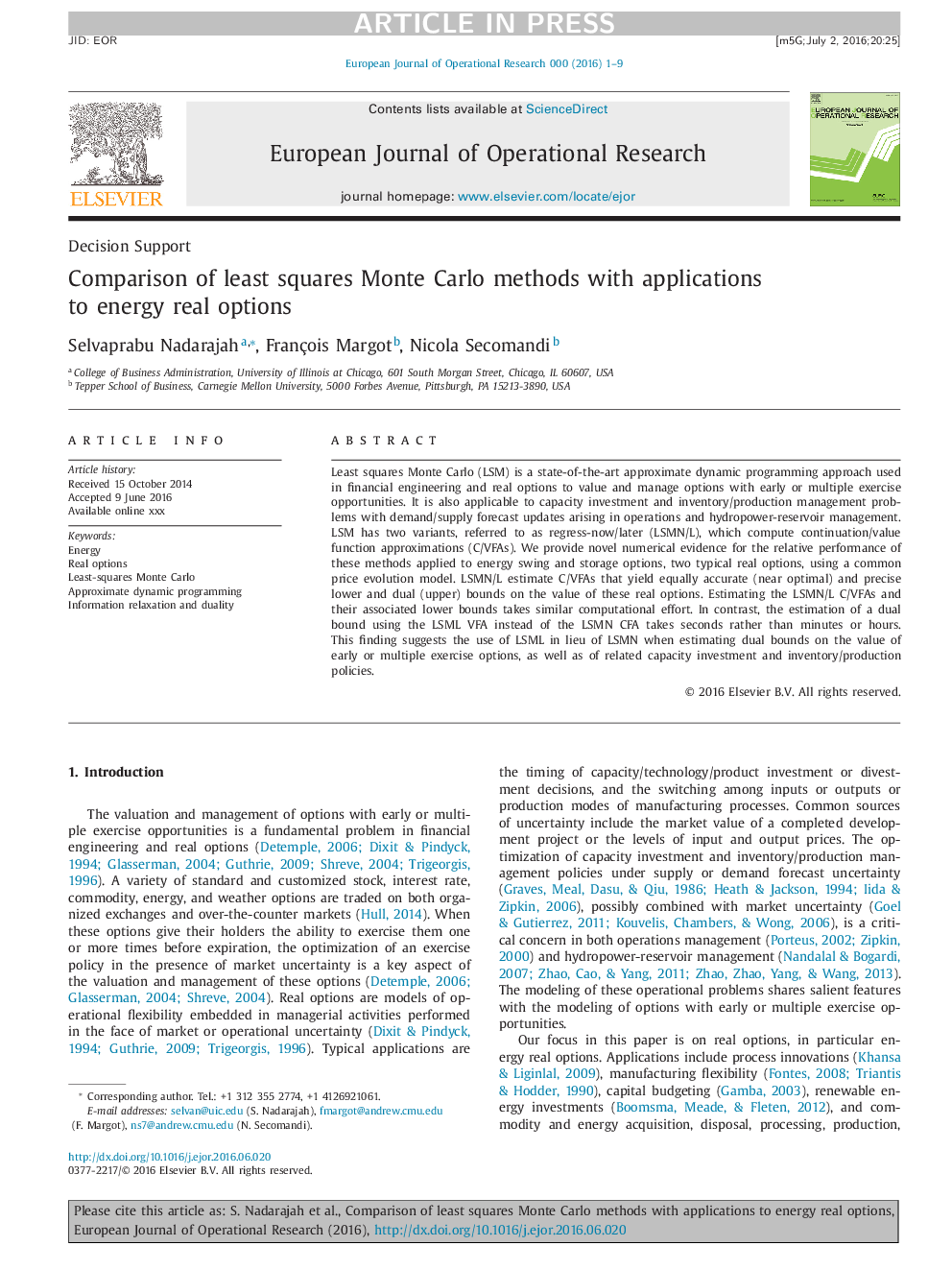| Article ID | Journal | Published Year | Pages | File Type |
|---|---|---|---|---|
| 4960100 | European Journal of Operational Research | 2017 | 9 Pages |
Abstract
Least squares Monte Carlo (LSM) is a state-of-the-art approximate dynamic programming approach used in financial engineering and real options to value and manage options with early or multiple exercise opportunities. It is also applicable to capacity investment and inventory/production management problems with demand/supply forecast updates arising in operations and hydropower-reservoir management. LSM has two variants, referred to as regress-now/later (LSMN/L), which compute continuation/value function approximations (C/VFAs). We provide novel numerical evidence for the relative performance of these methods applied to energy swing and storage options, two typical real options, using a common price evolution model. LSMN/L estimate C/VFAs that yield equally accurate (near optimal) and precise lower and dual (upper) bounds on the value of these real options. Estimating the LSMN/L C/VFAs and their associated lower bounds takes similar computational effort. In contrast, the estimation of a dual bound using the LSML VFA instead of the LSMN CFA takes seconds rather than minutes or hours. This finding suggests the use of LSML in lieu of LSMN when estimating dual bounds on the value of early or multiple exercise options, as well as of related capacity investment and inventory/production policies.
Related Topics
Physical Sciences and Engineering
Computer Science
Computer Science (General)
Authors
Selvaprabu Nadarajah, François Margot, Nicola Secomandi,
